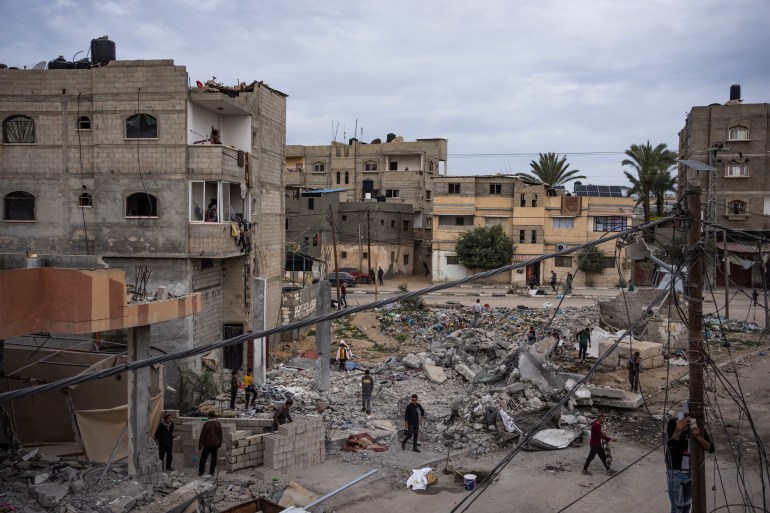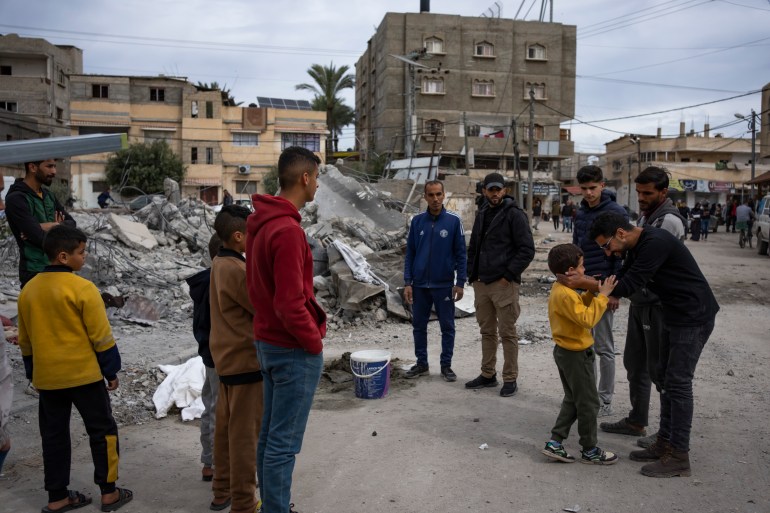His entire family is now dead – his parents, his two brothers, and the wife and three children of one of those brothers. The house, reduced to rubble came down on top of them in the barrage of air strikes that Israeli warplanes inflicted across Rafah before dawn on Monday.
The attack was cover for an extraction by ground troops of two hostages held in the city that sits on the southern Gaza border.
Thirty-year-old Ibrahim, his parents and his brothers, had arrived in Rafah a month earlier. It was just the latest of their multiple moves to escape fighting after fleeing their homes in northern Gaza. They rented a small, one-storey house on the east side of Rafah.

The strikes shattered a moment of brief joy. The family had just obtained three chickens — the first since the war started more than four months ago.
“The children were thrilled,” Ibrahim said. The family was sick of canned food, which was the main thing they were able to get under an Israeli siege that has allowed only a trickle of humanitarian aid into Gaza.
They planned to eat the chicken on Sunday night. But during the day, Ibrahim went to visit a friend on the other side of Rafah, who convinced him to stay the night. Ibrahim called home, and the treasured meal was delayed so he wouldn’t miss it. Ibrahim’s mother, Suzan, put the chickens in the neighbour’s fridge.
Just after 2am on Monday, Ibrahim began getting calls from friends telling him strikes had hit in the neighbourhood where his family was staying. Unable to reach them by phone, he walked and hitched a motorcycle ride back home.
He found massive destruction. The first thing he saw was a woman’s arm that had been hurled across the street to the door of a neighbouring mosque. It was his mother’s. He dug through the rubble, pulling out body parts.

Later he went to the Abu Youssef al-Najjar Hospital and identified the bodies of his mother and father, Fawzi, an engineer. The body of his younger brother Mohammed had no head, but he recognised the clothes.
In a bag that staff brought him were parts of his brother Karam and his family. He recognised pieces of his niece Suzan from her earrings and a bracelet, one she used to fight over all the time with her sister.
Israel said the bombardment was to cover its troops as they extracted two Israeli hostages from an apartment and made their way back out of Gaza. The military has not commented on why specific sites across Rafah were targeted in the barrage, but Israeli officials have blamed Hamas for causing civilian casualties by operating in the heart of residential areas.
The extent of the bloodshed from the raid has increased fears of what could happen if Israel follows through with promises to attack Rafah in its campaign to destroy Hamas. The city and its surroundings now shelter more than half of the Gaza Strip’s entire population of 2.3 million after hundreds of thousands took refuge there.
Israel’s campaign in Gaza has killed more than 28,000 Palestinians, more than 70 percent of them women and children, according to the Gaza Health Ministry.